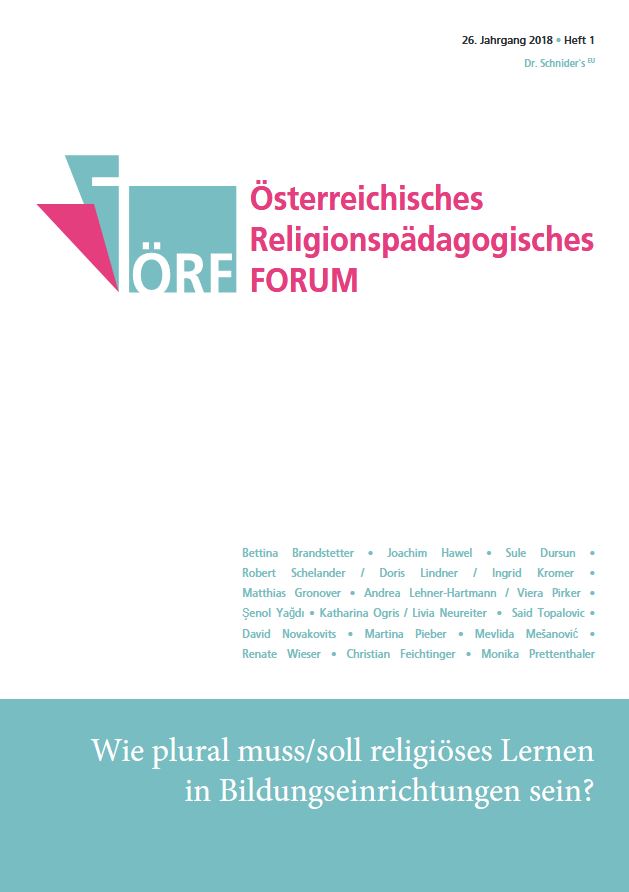Islamic religious education and the formation of a pluralistic habitus
A critical discussion within religious education
Keywords:
Habitus formation, Islamic religious education, Islamic religion teachers, competences, pluralityAbstract
Increasing cultural and religious plurality are distinctive and substantial characteristics of modern, multicultural societies. A pluralistic society like Austria therefore represents a central challenge for Islamic religion teachers at school. Islamic religious education in a European context is confronted with the task to promote necessary religious pedagogic competences and to provide training opportunities to allow religion teachers to act in a pluralistic society. The current contribution will examine the concept of habitus and its significance for competences of Islamic religion teachers and the perspectives that a pluralistic Islamic religious education can develop in this context. The focus of this paper lies on the discourse about necessary competences of religion teachers which allow them to act within their pedagogic practice in a way that is compatible with a pluralistic society and finally to incorporate acquired skills into their habitus. In this context, the formation of a habitus within the profession of teaching appears as an interminable process, which equally involves the personality of religion teachers. This paper tries to address the aspect of reflexivity relating to the concept of habitus as a key competence for Islamic religion teachers that enables them to adequately deal with a pluralistic society. The aim of cultivating a habitus of Islamic religion teachers is to integrate and to advance the acquired competences to let Islamic pupils benefit from their teachers.

